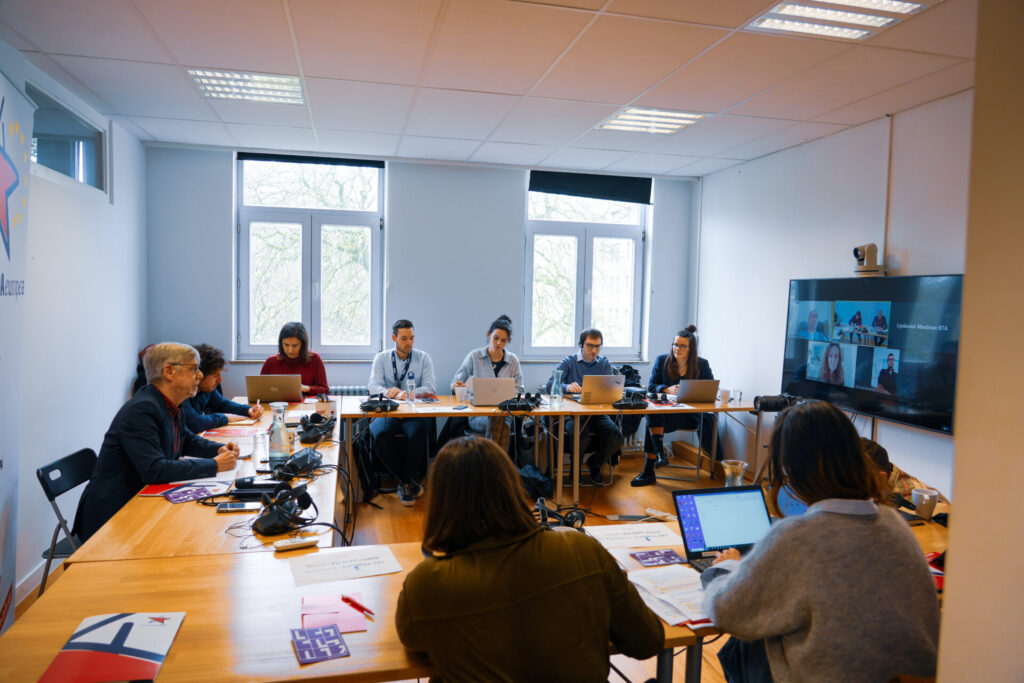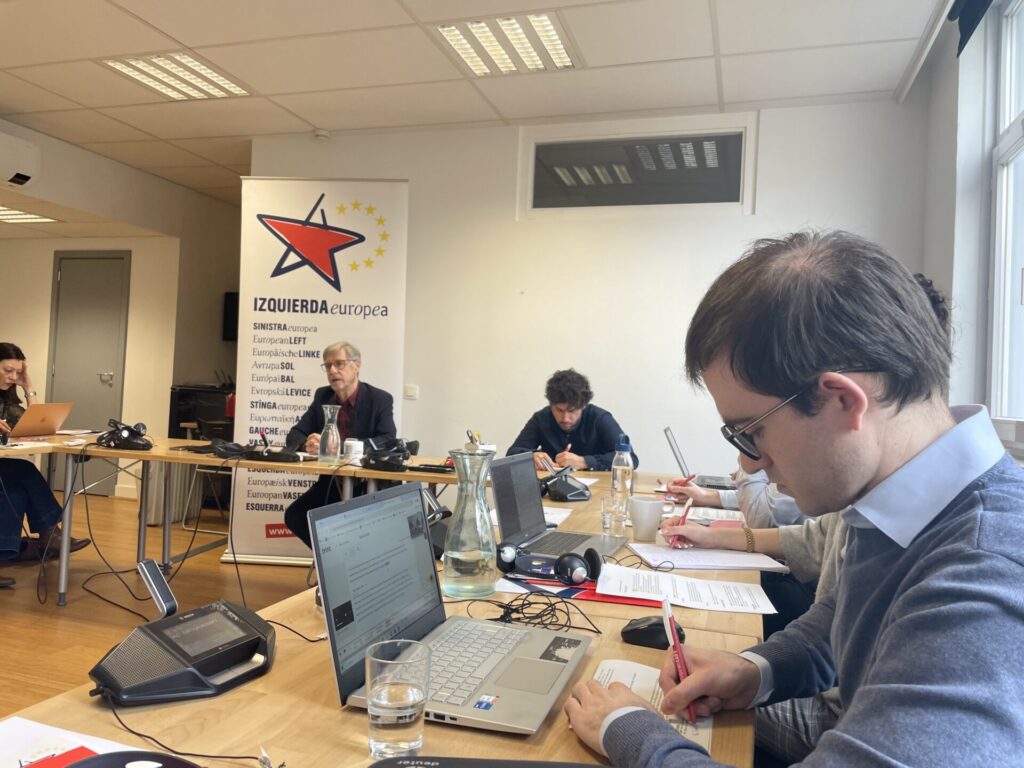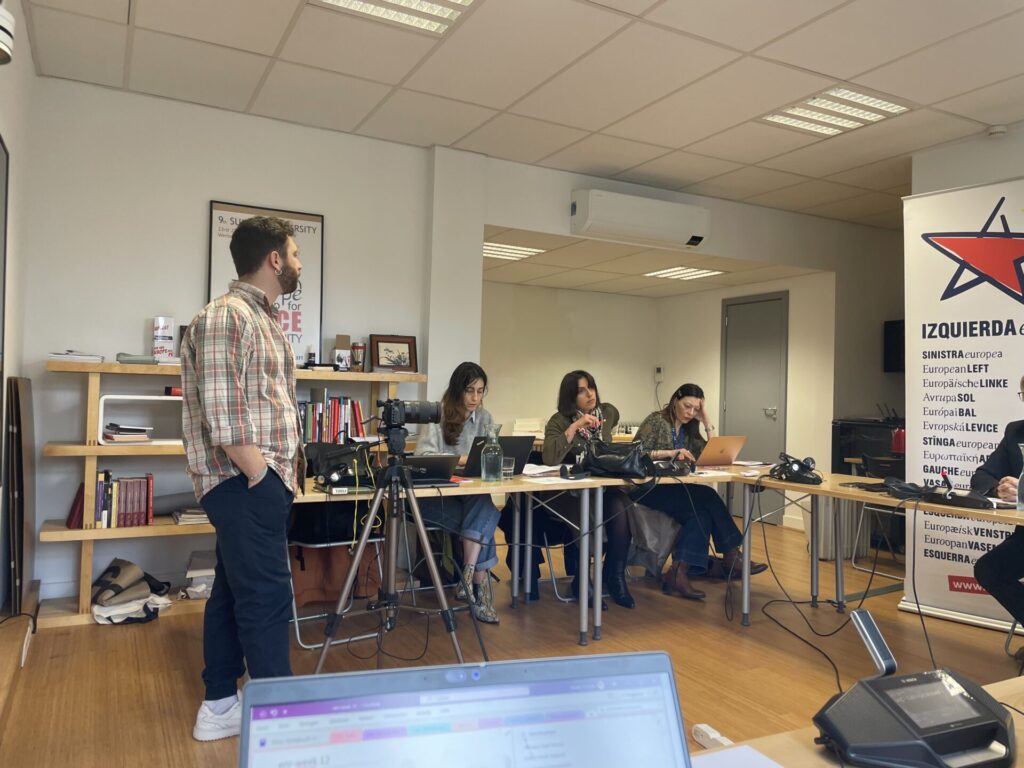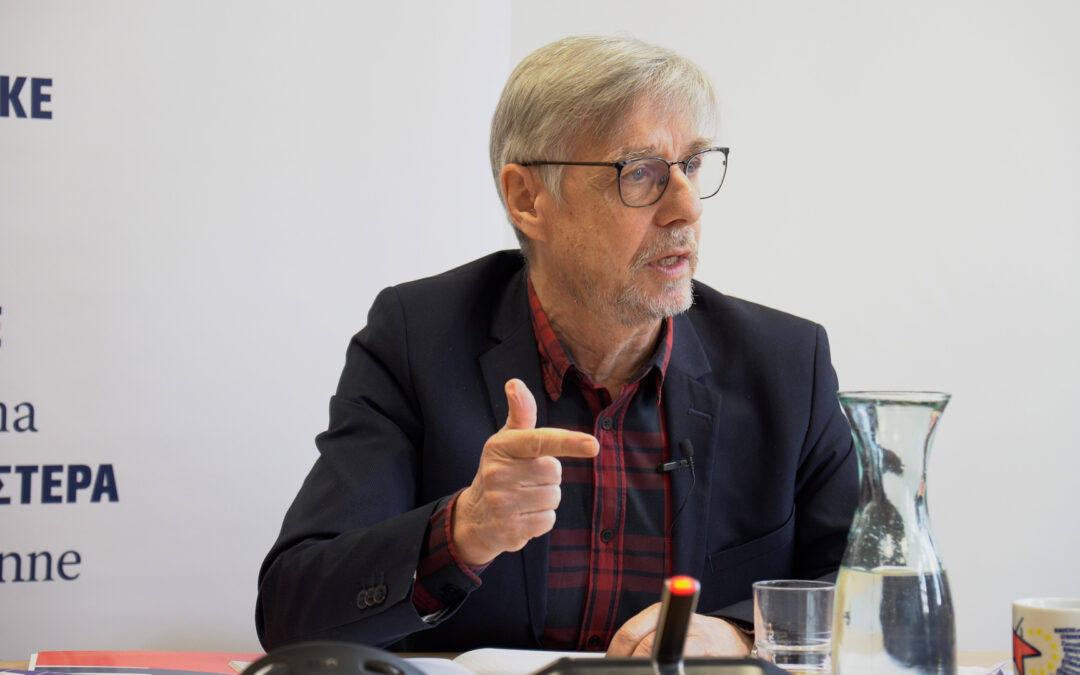“First of all, I want to say fighting the far-right is a moral and a cultural obligation. And there can be no compromises with the agenda of hatred, of antisemitism, of scapegoating the migrants. In this regard, we feel in line with many forces in the European spectrum of politics,” said Walter Baier.
The 70-year-old Austrian was nominated last month by the Party of the European Left (PEL) as its candidate to head the next European Commission. Baier has been PEL president since December 2022 and helped found the “transform!europe” network of alternative thinking and political dialogue.
The Party of the European Left is the larger of two leftist formations in the European Parliament – along with Now the People. Both are part of the 37-strong group of lawmakers called The Left in the EU parliament – where polls point to a surge by far-right movements in the upcoming elections across the 27-nation bloc in June.



Photos: European Left (left), European Newroom
According to the Austrian politician, fighting the European far-right requires strong social politics, respect for the social interests of employees, liberation of young people from the danger of insecurity and guaranteeing access to decent housing.
Climate change must also not be forgotten in the fight for social justice. “Ecological reorganisation must go hand in hand with the reduction of social inequalities,” Baier said.
With these priorities for his campaign, Baier rules out for the time being that the current President of the European Commission, Ursula von der Leyen, will gain the support of the Left group in the European Parliament because “she is not the right person” to implement them.
Video: FENA. Language: English.
Several enr agencies, including AFP, AGERPRES, AMNA, ANSA, BTA, dpa, EFE, LUSA and STA attended the interview in person or online.
Based on the interview, the enr produced a joint Key Story which you can find here. Follow the European Newsroom on Social Media and check out the wires from the respective outlets online if you are interested in learning about each country’s specific take on the subject.
